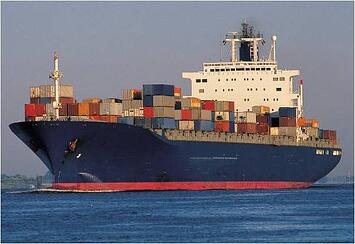We’ve talked about carrier alliances and specifically the P3 Network quite a bit in Universal Cargo Management’s blog. But last week, there was big news on the P3 Network that makes it worth talking about some more.
P3 Network Clears Major Hurdle
The triumvirate of Maersk, Mediterranean Shipping Co., and CMA CGM, known as the P3 Network, crossed a big marker toward becoming a reality last week.
 The Federal Maritime Commission, after an extensive review, has approved the plan of the world’s 3 largest shipping lines to cooperate with their operating activities of international shipping on the world’s major trade lanes.
The Federal Maritime Commission, after an extensive review, has approved the plan of the world’s 3 largest shipping lines to cooperate with their operating activities of international shipping on the world’s major trade lanes.
Commissioner William P. Doyle said in his statement on the decision, “I am in favor of nottaking any further action to delay the implementation of the P3 Network Vessel Sharing Agreement.”
Commissioner Doyle went on to say, “I am particularly pleased that the P3 Parties have reconsidered how they would handle negotiations with third parties, suppliers, small businesses, and other service providers.” [1]
Doyle was referring to Article 5.4(b) of the P3 Network proposal that allowed the joint contract negotiations from these 3 shipping lines with marine terminal operators, dockworkers, tug operators, and other international shipping industry providers or suppliers.
Here’s how 5.4(b) was originally set up and how it was changed.
Original Language Article 5.4(b):
The Parties or any two of them may (where they are legally permitted to do so) negotiate jointly and to contract jointly and/or individually with marine terminal operators, stevedores, tug operators, other providers or suppliers of other vessel-related goods and services and/or inland carriers; provided, however, that any joint negotiations/contracts with an air, rail or motor carrier or group of such carriers with respect to services to be provided within the United States shall be subject to the U.S. antitrust laws.
New Language (in italics) Article 5.4(b):
The Parties shall negotiate independently with and enter into separate individual contracts with marine terminal operators, stevedores, tug operators, other providers or suppliers of other vessel-related goods and services and/or inland carriers in the United States; provided, however, that the Parties are authorized to discuss, exchange information, and/or coordinate negotiations with marine terminal operators relating to operational matters such as port schedules and berthing windows; availability of port facilities, equipment and services; adequacy of throughput; and the procedures of the interchange of operational data in a legally compliant matter.[2]
Dissenting Opinion on FMC’s Approval of P3 Network
Not all the commissioners of the FMC were in favor of approving the P3 Network.
Commissioner Richard A. Lidinsky, Jr. wrote in a dissenting opinion:
…this agreement is in reality not an alliance or true vessel sharing arrangement. Rather, it is in effect a merger of the top three global liner companies.
This agreement will allow the controlling carrier the ability, when coupled with existing discussion agreements, to deploy its assets along with those of the other two carriers, to dominate vessel competition and narrow shipper options at U.S. ports.[3]
Certainly many in the international shipping industry agree with Commissioner Lidinsky’s opinion.
There has been fear among those in the international shipping community that this “ship sharing” alliance between the 3 largest shipping carriers will hurt competition, driving out other, smaller carriers, and eventually drive up international shipping costs as well as hurting contract negotiations with these carriers.
FMC Provision on P3 Network
With its approval of the P3 Network, the FMC is not planning to close its eyes and let these carriers do whatever they want with their triumvirate.
Commissioner Doyle stated:
I do want to offer a word of caution, the P3 Parties should be mindful of the antitrust probes that are being conducted in the oceanborne transportation sector – worldwide. To this end, the Federal Maritime Commission is not taking its hands off the wheel and is hereby instituting a monitoring program for the P3 Network Alliance.[4]
The FMC is to review P3 agreements before they go into effect and forbid any that are “substantially anticompetitive”.
It looks like we’ll soon find out how uncompetitive the international shipping waters are with the 3 biggest carriers working together. But there still are a couple more hurdles the P3 Network has to clear first…
